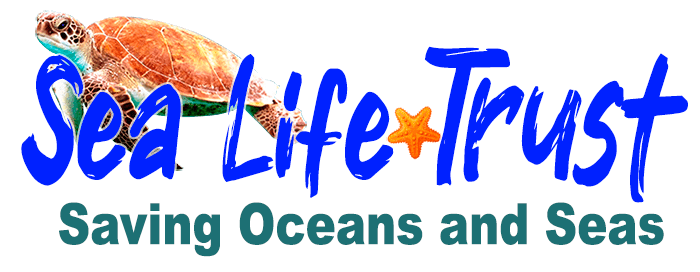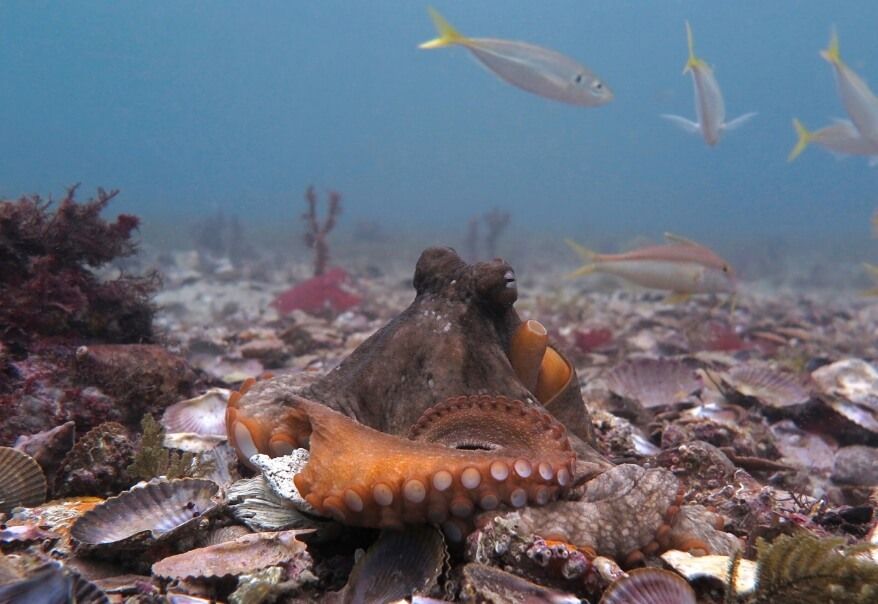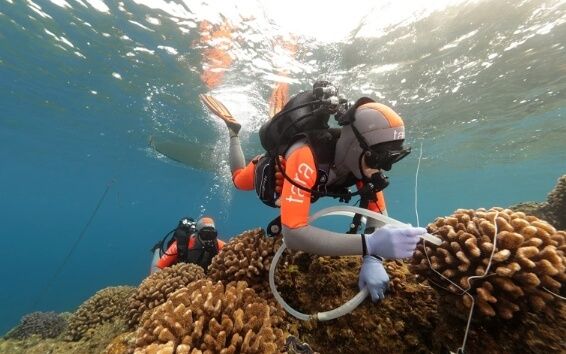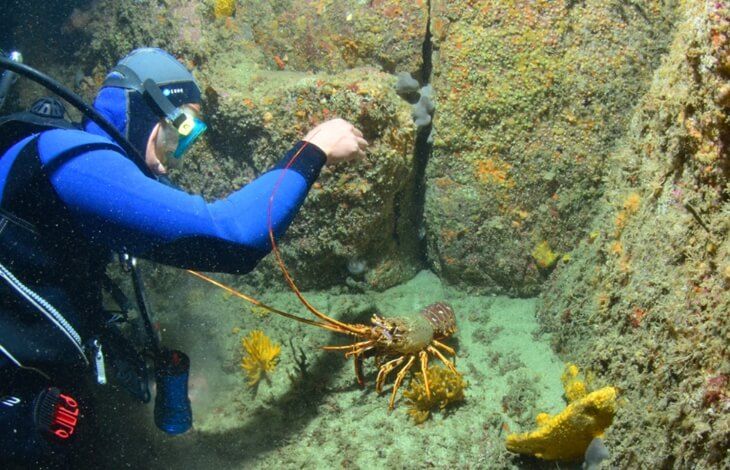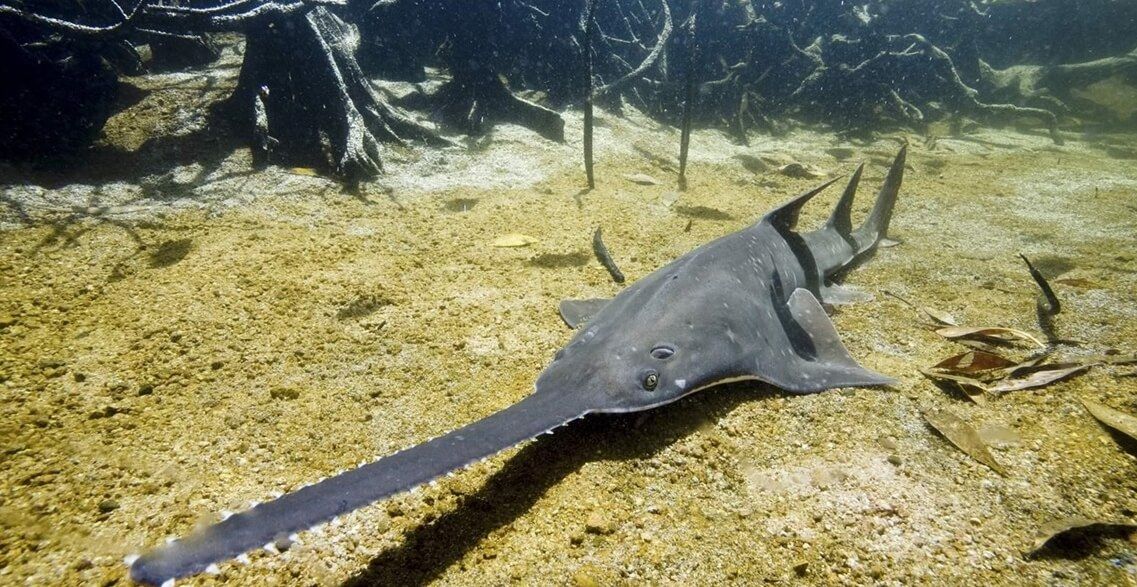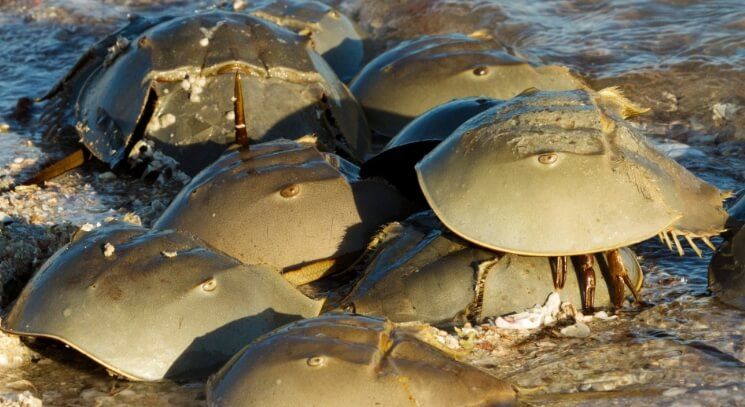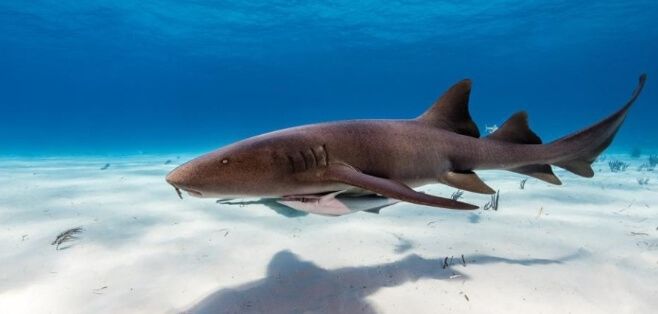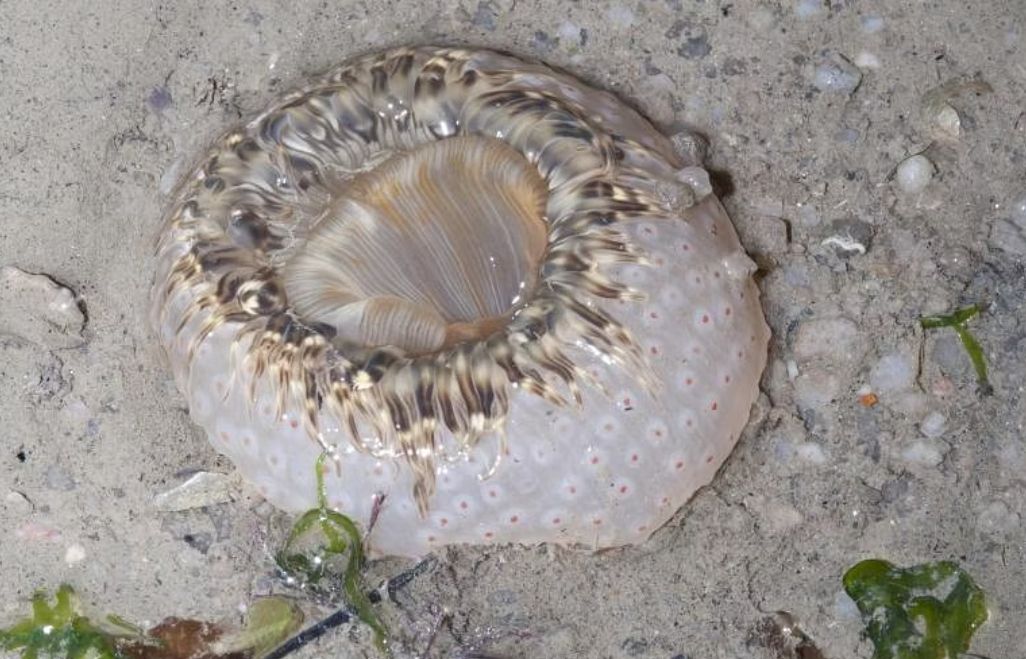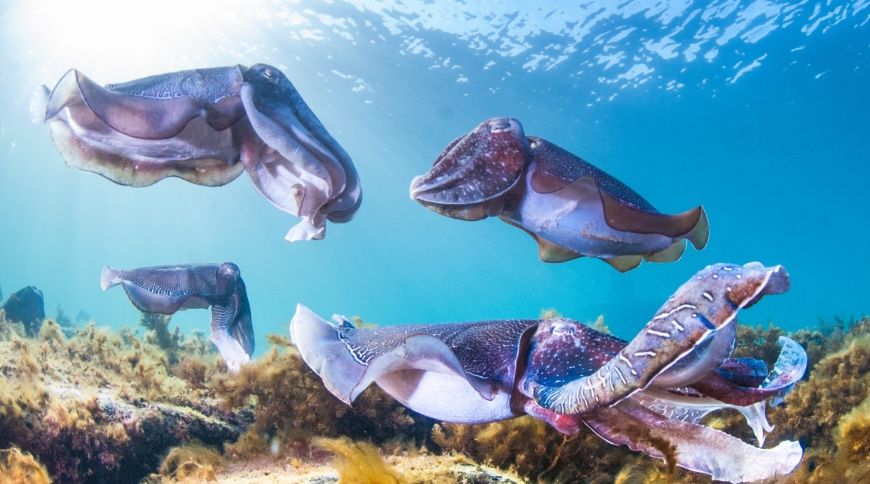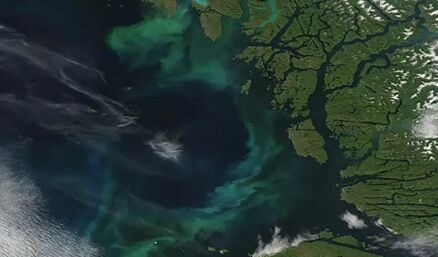Discover Octlantis, an astonishing underwater metropolis inhabited by a remarkable octopus colony. Situated in Jervis Bay, Australia, this city, uncovered in 2017, has captivated the attention of researchers and scientists, unveiling intricate social behaviors among these cephalopods.
The remarkable discovery of Octlantis pushes the boundaries of our understanding of octopuses’ social capabilities, enticing us to delve deeper into the enigmatic underwater realm.
The Largest Octopus Community in the World
Back in 2017, a fascinating finding emerged in the realm of marine biology as researchers stumbled upon Octlantis, an intricate society of octopods residing beneath the waters of Jervis Bay in eastern Australia. This captivating community continues to intrigue scientists to this day.
Through careful observation, researchers have made a remarkable observation regarding cephalopods, indicating that these intelligent creatures exhibit signs of advanced social behavior.
This includes the construction of intricate structures, establishment of territories, and consistent interactions among themselves. Researchers have documented intriguing social behaviors in octopuses that defy conventional expectations, including:
- Grouping of individuals.
- Cooperative communication.
- Regular occurrences of conflicts.
These observations have shed new light on the social dynamics of octopuses.
While significant strides have been made in uncovering the intricacies of these behaviors, there remains a need for further research to deepen our understanding of their origins and evolutionary development.
Real Architects of the Sea
The striking resemblance of their behavior to that observed in vertebrates indicates that under favorable conditions, the evolution of behaviors can yield similar outcomes in vastly different organisms. This discovery underscores the remarkable adaptability and convergence of behavioral patterns across diverse species.
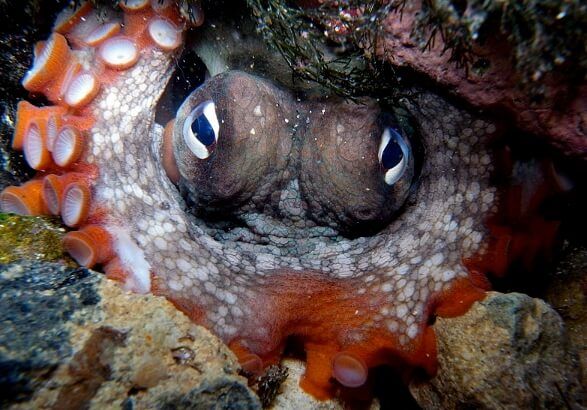
The octopuses residing in Octlantis have demonstrated remarkable engineering prowess through their construction of walls and dens using sand and seashells, creating a captivating underwater city. These findings offer valuable insights into the cognitive abilities of marine creatures, sparking intriguing inquiries and theories regarding the evolution of this species and their remarkable adaptability to their surroundings.
The discovery of Octlantis not only unveils the splendor of the marine realm but also paves the way for exciting future investigations into the intelligence of creatures thriving in previously unexplored depths.
Behavioral Changes for Octopods
Researchers have made a surprising revelation about the “tetricus octopuses,” previously believed to be solitary creatures. It appears that their behavior varies depending on their surroundings, challenging the notion of their inherent loner and hermit tendencies. Contrary to expectations, these octopuses display diverse behaviors that go beyond the traditional mating season, adding a new layer of complexity to our understanding of their social interactions.
The researchers caution that while it is not definitive that these gatherings are typical, the presence of Octlantis and Octopolis demonstrates a genuine ability for octopuses to organize themselves into a society.
“These behaviors, resulting from natural selection, exhibit striking similarities to the intricate social behaviors observed in vertebrates,” explained David Scheel, the lead researcher on the study, in an interview with Quartz.
He further suggests that under favorable conditions, evolution can lead to similar outcomes across different groups of organisms. Scientists are eager to conduct further investigations to determine the impact of this behavior on octopuses.
A Reef Spared by Climate Change
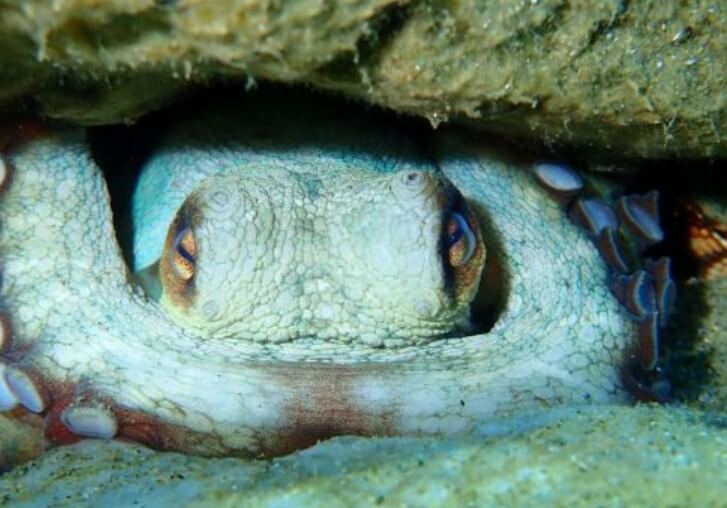
The preservation of Octlantis, an important natural habitat for this endangered species, is paramount. This reef serves as a vital home to diverse marine life and plays a significant role in the local ecosystem. Unfortunately, human activities like fishing and pollution pose a threat to its existence. Several initiatives have been undertaken to safeguard Octlantis, including:
- Implementing regulations to manage fishing activities sustainably.
- Raising public awareness about the importance of preserving the reef and its inhabitants.
- Conducting regular monitoring of the ecosystem to assess its health and identify any potential threats.
These actions aim to safeguard Octlantis and ensure the long-term survival of its unique marine life
